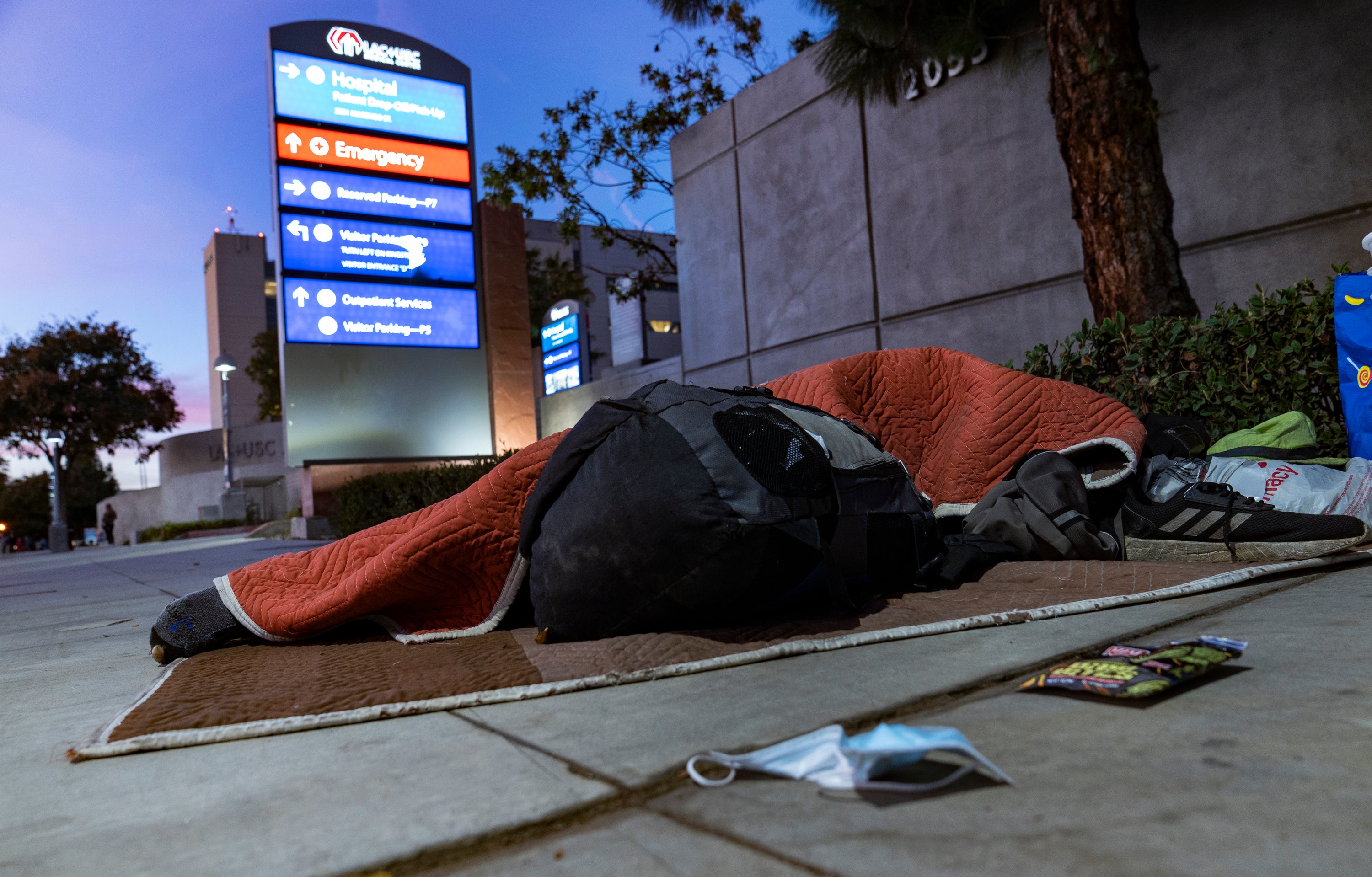Federal government approves California's Medicaid overhaul
The U.S. government has approved California’s overhaul of the nation’s largest insurance program for low-income and disabled residents

Your support helps us to tell the story
From reproductive rights to climate change to Big Tech, The Independent is on the ground when the story is developing. Whether it's investigating the financials of Elon Musk's pro-Trump PAC or producing our latest documentary, 'The A Word', which shines a light on the American women fighting for reproductive rights, we know how important it is to parse out the facts from the messaging.
At such a critical moment in US history, we need reporters on the ground. Your donation allows us to keep sending journalists to speak to both sides of the story.
The Independent is trusted by Americans across the entire political spectrum. And unlike many other quality news outlets, we choose not to lock Americans out of our reporting and analysis with paywalls. We believe quality journalism should be available to everyone, paid for by those who can afford it.
Your support makes all the difference.The U.S. government has approved California s overhaul of the nation's largest insurance program for low-income and disabled residents, officials said Wednesday, a decision that among other things allows Medicaid money to be spent on housing-related services as the most populous state struggles with homelessness and a lack of affordable housing.
CalAIM — California Advancing and Innovating Medi-Cal — intends a more comprehensive approach that improves the "entire continuum of care” across the program that California calls Medi-Cal, according to the California Department of Health Care Services.
Starting with the new year Saturday, California will among other things expand what had been a limited “whole person care pilot program" to eligible Medi-Cal members statewide.
“We’re making Medi-Cal, which provides health care to one-third of all Californians, the most comprehensive, robust such program in the entire country,” Gov. Gavin Newsom said in a statement.
Aside from covering one of every three Californians, Medi-Cal covers more than half of school-age children, half of births in California, and more than two of every three patient days in long-term care facilities, officials said.
The goal of the new approach is to prioritize prevention and address underlying societal conditions, particularly in populations that have had fewer health care services and faced structural racism in health care, said California Health and Human Services Agency Secretary Dr. Mark Ghaly.
California’s Medicaid program offers government-funded insurance to people 50 and over and 25 and younger regardless of their immigration status. California has the nation's largest Medicaid program.
Medi-Cal benefits will not change. But what are known as “enhanced care management services” can now include a “care coordinator” under Medi-Cal managed care plans.
The coordinator can help Medi-Cal members find doctors, schedule appointments and set up medical transportation. The coordinator can also help members understand their medications, secure mental health services, and locate and apply for community-based services such as housing subsidies or food assistance.
“The goal here is to extend supports and services beyond hospitals and health care settings directly into communities that need it most,” said Tina Rivera, interim director of Sonoma County’s Health Services Department.
The state is shifting four programs — Medi-Cal Managed Care, Dental Managed Care, Specialty Mental Health Services, and Drug Medi-Cal Organized Delivery System — into one coordinating authority. Officials said that is intended to simplify and align the programs while standardizing benefits and enrollment.
Medicaid services will now for the first time formally include substance abuse treatment, including short-term residential treatment when needed.
The program also expands certain dental benefits statewide, including efforts to spot risk factors for dental decay in children and provide silver diamine fluoride for kids and other high-risk populations.
The state promises under the new system to better coordinate programs under one managed care plan for older residents who are eligible for both Medi-Cal and Medicare.
The federal approvals also renew a statewide funding pool for care provided to California’s remaining uninsured residents, such as those served by public hospitals.
Those 21 public health care systems include just 6% of California's hospitals, but they said they provide 40% of hospital care to the remaining uninsured and 35% of hospital care to Medi-Cal beneficiaries.
Erica Murray, president and CEO of the California Association of Public Hospitals and Health Systems, said that funding pool "gives public health systems flexibilities to deliver the right care in the right setting to the uninsured.”
The new approvals also restore coverage of chiropractic services for Indian Health Service and tribal facilities, coverage that had been eliminated in 2009.
California expects approval from the federal Centers for Medicare & Medicaid Services early next year to expand services for adults and youth involved in the criminal justice system before they are released from incarceration, so they continue receiving those services in the community.
Another pending waiver would allow Medi-Cal reimbursement for some traditional healers and natural helpers for Native Americans and Alaska Natives.